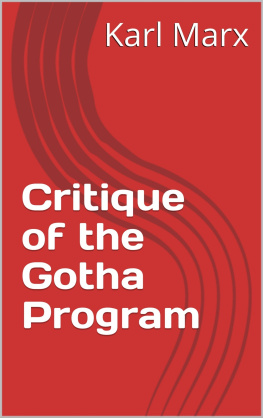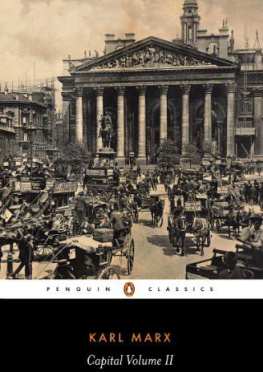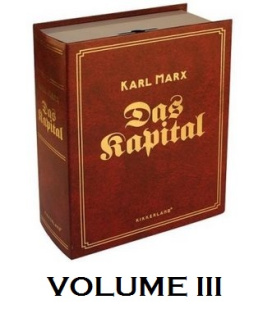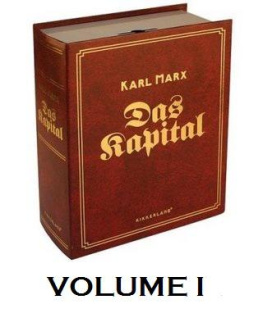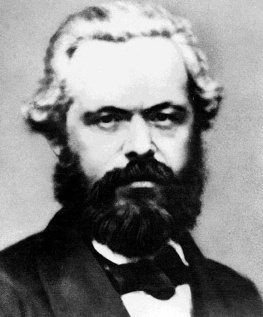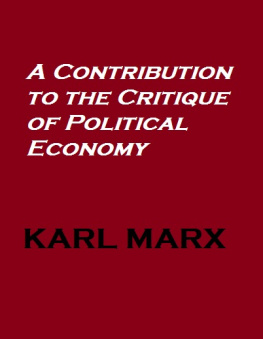Karl Marx - Critique of the Gotha Programme
Here you can read online Karl Marx - Critique of the Gotha Programme full text of the book (entire story) in english for free. Download pdf and epub, get meaning, cover and reviews about this ebook. year: 2009, publisher: Dodo Press, genre: Politics. Description of the work, (preface) as well as reviews are available. Best literature library LitArk.com created for fans of good reading and offers a wide selection of genres:
Romance novel
Science fiction
Adventure
Detective
Science
History
Home and family
Prose
Art
Politics
Computer
Non-fiction
Religion
Business
Children
Humor
Choose a favorite category and find really read worthwhile books. Enjoy immersion in the world of imagination, feel the emotions of the characters or learn something new for yourself, make an fascinating discovery.
Critique of the Gotha Programme: summary, description and annotation
We offer to read an annotation, description, summary or preface (depends on what the author of the book "Critique of the Gotha Programme" wrote himself). If you haven't found the necessary information about the book — write in the comments, we will try to find it.
Critique of the Gotha Programme — read online for free the complete book (whole text) full work
Below is the text of the book, divided by pages. System saving the place of the last page read, allows you to conveniently read the book "Critique of the Gotha Programme" online for free, without having to search again every time where you left off. Put a bookmark, and you can go to the page where you finished reading at any time.
Font size:
Interval:
Bookmark:
Written: April or early May, 1875;
Source: Marx/Engels Selected Works, Volume Three, p. 13-30;
Publisher: Progress Publishers, Moscow, 1970;
First Published: Abridged in the journal Die Neue Zeit, Bd. 1, No. 18, 1890-91;
Online Version: mea; marxists.org 1999;
Transcribed: Zodiac and Brian Baggins;
HTML Markup: Brian Baggins.
HTML Source: http://www.marxists.org/archive/marx/works/1875/gotha/
Critique of the Gotha Programme is a critique of the draft programme of the United Workers' Party of Germany. In this document Marx address the dictatorship of the proletariat, the period of transition from capitalism to communism, the two phases of communist society, the production and distribution of the social goods, proletarian internationalism, and the party of the working class.
Lenin later wrote:
The great significance of Marx's explanation is, that here too, he consistently applies materialist dialectics, the theory of development, and regards communism as something which develops out of capitalism. Instead of scholastically invented, 'concocted' definitions and fruitless disputes over words (What is socialism? What is communism?), Marx gives analysis of what might be called the stages of the economic maturity of communism.
(Lenin Collected Works, Volume 25, p. 471)
Engels wrote a foreword when the document was first published in 1891. Together with the Critique of the Gotha Programme Engels published Marx's letter to Bracke, directly bound up with the work.
The manuscript published here the covering letter to Brackeas well as the critique of the draft programme was sent in1875, shortly before the Gotha Unity Congress, to Bracke for communication to Geib, Auer, Bebel , and Liebknecht and subsequent return to Marx. Since the Halle Party Congress has put the discussion of the Gotha Programme on the agenda of the Party, I think I would be guilty of suppression if I any longer withheld from publicity this important perhaps the most important document relevant to this discussion.
But the manuscript has yet another and more far-reachingsignificance. Here for the first time Marx's attitude to theline adopted by Lassalle in his agitation from the verybeginning is clearly and firmly set forth, both as regardsLassalle's economic principles and his tactics.
The ruthless severity with which the draft programme isdissected here, the mercilessness with which the resultsobtained are enunciated and the shortcomings of the draft laidbare all this today, after fifteen years, can no longer giveoffence. Specific Lassalleans now exist only abroad as isolatedruins, and in Halle the Gotha Programme was given up even by itscreators as altogether inadequate.
Nevertheless, I have omitted a few sharp personal expressionsand judgments where these were immaterial, and replaced them bydots. Marx himself would have done so if he had published themanuscript today. The violence of the language in some passageswas provoked by two circumstances. In the first place, Marx andI had been more intimately connected with the German movementthan with any other; we were, therefore, bound to beparticularly perturbed by the decidedly retrograde stepmanifested by this draft programme. And secondly, we were atthat time, hardly two years after the Hague Congress of the International, engaged in the most violent struggle against Bakunin and his anarchists, who made us responsible for everything that happened in the labour movement in Germany; hence we had to expect that we would also be addled with the secret paternity of this programme. These considerations do not now exist and so there is no necessity for the passages in question.
For reasons arising form the Press Law, also, a few sentenceshave been indicated only by dots. Where I have had to choose amilder expression this has been enclosed in squarebrackets. Otherwise the text has been reproduced word for word.
London, January 6, 1891
Before the Critique of the Gotha Programme was written, Engels wrote a letter to August Bebel expressing Marx and Engels' surprise at the programme, and going on to criticise it.
In Brunswick
Dear Bracke,
When you have read the following critical marginal notes on the Unity Programme, would you be so good as to send them on to Geib and Auer, Bebel and Liebknecht for examination. I am exceedingly busy and have to overstep by far the limit of work allowed me by the doctors. Hence it was anything but a pleasure to write such a lengthy creed. It was, however, necessary so that the steps to be taken by me later on would not be misinterpreted by our friends in the Party for whom this communication is intended.
After the Unity Congress has been held, Engels and I will publish a short statement to the effect that our position is altogether remote from the said programme of principle and that we have nothing to do with it.
This is indispensable because the opinion the entirely erroneous opinion is held abroad and assiduously nurtured by enemies of the Party that we secretly guide from here the movement of the so-called Eisenach Party. In a Russian book [Statism and Anarchy] that has recently appeared, Bakunin still makes me responsible, for example, not only for all the programmes, etc., of that party but even for every step taken by Liebknecht from the day of his cooperation with the People's Party.
Apart from this, it is my duty not to give recognition, even by diplomatic silence, to what in my opinion is a thoroughly objectionable programme that demoralises the Party.
Every step of real movement is more important than a dozen programmes. If, therefore, it was not possible and the conditions of the item did not permit it to go beyond the Eisenach programme, one should simply have concluded an agreement for action against the common enemy. But by drawing up a programme of principles (instead of postponing this until it has been prepared for by a considerable period of common activity) one sets up before the whole world landmarks by which it measures the level of the Party movement.
The Lassallean leaders came because circumstances forced them to. If they had been told in advance that there would be haggling about principles, they would have had to be content with a programme of action or a plan of organisation for common action. Instead of this, one permits them to arrive armed with mandates, recognises these mandates on one's part as binding, and thus surrenders unconditionally to those who are themselves in need of help. To crown the whole business, they are holding a congress before the Congress of Compromise, while one's own party is holding its congress post festum. One had obviously had a desire to stifle all criticism and to give one's own party no opportunity for reflection. One knows that the mere fact of unification is satisfying to the workers, but it is a mistake to believe that this momentary success is not bought too dearly.
For the rest, the programme is no good, even apart from its sanctification of the Lassallean articles of faith.
I shall be sending you in the near future the last parts of the French edition of Capital. The printing was held up for a considerable time by a ban of the French Government. The thing will be ready this week or the beginning of next week. Have you received the previous six parts? Please let me have the address of Bernhard Becker, to whom I must also send the final parts.
The bookshop of the Volksstaat has peculiar ways of doing things. Up to this moment, for example, I have not been sent a single copy of the
Font size:
Interval:
Bookmark:
Similar books «Critique of the Gotha Programme»
Look at similar books to Critique of the Gotha Programme. We have selected literature similar in name and meaning in the hope of providing readers with more options to find new, interesting, not yet read works.
Discussion, reviews of the book Critique of the Gotha Programme and just readers' own opinions. Leave your comments, write what you think about the work, its meaning or the main characters. Specify what exactly you liked and what you didn't like, and why you think so.

